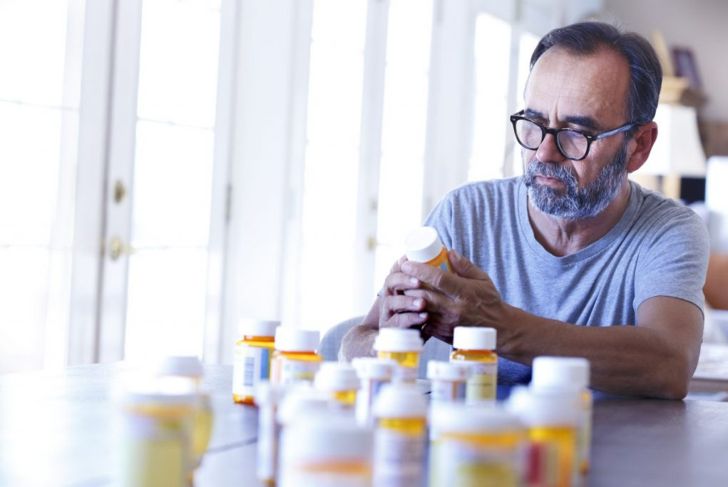Anorgasmia or orgasmic disorder is a condition that affects one’s ability to experience orgasm. It’s not clear exactly how prevalent the condition is, as many who experience symptoms are ashamed to speak about it, even with their doctor. The condition can have both physical and psychological causes. For some, treatment is relatively simple, while for others there is no easy cure. Teaching the public all about anorgasmia can help end the stigma and allow affected individuals to seek help.
What is Anorgasmia?
An orgasm is a release of physical tension coupled with feelings of intense physical pleasure that most people experience through sexual stimulation. Anorgasmia is the inability to achieve this state. It can also refer to people who have long delays in experiencing orgasm. There are four categories of anorgasmia. Those with primary, or lifelong, anorgasmia have never experienced an orgasm. Secondary, or acquired, anorgasmia refers to people who have lost the ability. Situational anorgasmia describes the ability to orgasm only in certain circumstances. General anorgasmia is an inability to orgasm under any circumstance.
Anorgasmia in Women
It can be difficult to study anorgasmia in women as different women experience orgasms in different ways. Additionally, an individual woman may find her orgasms are different each time she climaxes. Old beliefs that women don’t enjoy sex may also lead women to believe that not reaching climax is normal. The Global Library of Women’s Medicine estimates that four percent of women experience lifelong anorgasmia. Figures on situational anorgasmia show around seven percent of women never orgasm during intercourse and between 23 and 29 percent have experienced orgasm difficulties.
Anorgasmia in Men
Anorgasmia is less common in men than women, but experts still estimate that 10 percent of men experience orgasmic disorder. The condition is especially rare in young men. Anorgasmia is separate from other sexual disorders, but men with the condition may also experience erectile dysfunction and low libido. Anorgasmia is closely associated with delayed ejaculation, a condition that most often affects older men.
Symptoms of Anorgasmia
The primary symptom of anorgasmia is the inability to have an orgasm, but people may experience other symptoms, as well, including delays in achieving orgasm and unsatisfying or less-intense orgasms. Some people still find their sex life satisfying, even in the absence of orgasm, and may not feel any need to see a doctor. However, if the symptoms affect a relationship or cause a person distress, they should consult a doctor.
Seeing a Doctor
Doctors ask a variety of questions to correctly diagnose and treat anorgasmia. Many are extremely personal, touching on sexual history, past experiences with orgasm, and recent life changes. They may also conduct tests to rule out physiological problems. These may include the examination of the sexual organs, blood tests to determine hormone levels, and general physicals. Although the questions may be embarrassing, answering honestly and candidly can help doctors plan appropriate treatment.
Psychological Causes of Anorgasmia
Psychological issues are the most common cause of anorgasmia. These are different for everyone but may include past sexual abuse, stress, poor body image, depression, and anxiety. People who need to be in control may also have difficulty letting go enough to achieve orgasm. Cultural or religious beliefs around sex may also lead to anorgasmia.
Physical Causes of Anorgasmia
There are many possible physical causes of anorgasmia. Medical conditions such as diabetes and Multiple sclerosis can cause orgasmic dysfunction. Men who have had a prostatectomy are prone to the condition, as are women who have had a hysterectomy, genital mutilation, or childbirth trauma including an episiotomy. Injuries of the pelvis and spinal trauma that affects the nerves can make it difficult to reach orgasm, as can conditions that affect circulation, such as heart disease. Anorgasmia can also be a normal response to the hormonal and physical changes that come with aging.
Drug-Induced Anorgasmia
Some medications cause anorgasmia. Prescription medicines that treat depression and anxiety, in particular, selective serotonin reuptake inhibitors (SSRIs), can have this effect. Other prescription and over-the-counter medicines that can cause a lack of orgasm include antihistamines, antipsychotics, and blood pressure medications. Recreational drugs can also lead to anorgasmia. Both alcohol and opioids like heroin can hamper a person’s ability to reach orgasm. Smoking can inhibit blood flow to the sexual organs and cause the condition, as well.
Treatment for Anorgasmia
Treatments for anorgasmia vary widely, depending on the cause. Waiting for an injury to heal or changing medication is a simple fix for some, as is hormone therapy for people with hormonal imbalances. Those with anorgasmia caused by psychological concerns may find traditional or sexual therapy, alone or with their partner, helpful. For women, in particular, taking time to explore their body, experimenting with different types of stimulation, and discovering what they like can lead to a breakthrough.
Support for People With Anorgasmia
For some, especially those with an underlying health condition, a cure for anorgasmia may not exist. In these cases, treatment concentrates on accepting this change in circumstance and finding ways to continue to enjoy sex and intimacy without orgasm. Seeking support from others in the same situation can help people come to terms with their condition. Difficulty reaching orgasm may be frustrating for partners as well as the person with the condition. Reframing expectations and focusing on pleasure rather than racing towards orgasm can help relationships stay strong.

 Home
Home Health
Health Diet & Nutrition
Diet & Nutrition Living Well
Living Well More
More




















